Mock Tests vs. Question Banks: Which One Actually Boosts PMP Scores?

Confused about Mock Tests vs. Question Banks: Which One Actually Boosts PMP Scores?
This guide explains the benefits of PMP mock tests, the advantages of question banks, and how using the right mix of strategies with online PMP exam help can maximize your results.
Studying to become a Project Management Professional (PMP) is not easy one. The right PMP exam prep mindset, combined with the wide scope of PMP knowledge areas, challenging situational questions, and high difficulty level in the PMP exam, requires candidates should embrace the right PMP exam prep strategies to pass the exam. There is always an argument amongst students: Mock Tests or Question Banks: Which one really increases PMP Scores?
Both instruments-mock tests and bank questions- are vital in the preparation process. They are, however, used differently. Knowing their distinct advantages, shortcomings, and how to combine them with a study plan might spell the difference between passing on the first try or having to retake the tests.
Benefits of PMP Mock Tests for Exam Prep
Mock tests have been seen as one of the authentic standards of PMP examination preparation tests. They are full-length exams that provide a realistic feel of the PMP exam simulations, enabling students to test not only how much they know but also whether they have the stamina and time management skills.
PMP Mock Test Practice Advantages
Here’s why mock exams can significantly boost your chances:
1. Time Management
The PMP exam allows you 230 minutes to answer 180 PMP exam questions, most of which are scenario-based and need a keen analysis. Unless practised, candidates have a tendency to run out of time or rush the last section. Mock exams are like training which teaches you to:
- Allow an average of one minute per question.
- Give special consideration to complicated scenario-based questions.
- Smartly use a schedule of short breaks over a given time window
By practicing under timed conditions, candidates develop a rhythm, which makes the actual exam feel less overwhelming. Over time, this repeated exposure builds efficiency and helps avoid last-minute time pressure.
2. Real Exam Simulation
The biggest advantages of the mock tests are that they can mimic the level of the PMP exam. When being on the test day, you will experience pressure, exhaustion, and time constraints. Practicing numerous simulated exams in advance is an exercise that prepares you for these conditions.
- Mental stamina: Facing a test paper that is 4 hours long may just sound tiresome, but mock tests can train your mind to stay alert.
- Anxiety Reduction: Test anxiety is greatly reduced as a student will have practiced an exam-like situation beforehand.
3. Performance Tracking
Mock exams don’t just test knowledge—they reveal your readiness. After each attempt, candidates receive detailed score reports that highlight strengths and weaknesses in different PMP knowledge areas (such as Cost, Quality, or Risk Management).
- If you consistently score low in “Schedule Management,” you know exactly where to refocus.
- If you notice improvement across successive mocks, you can track measurable progress.
- Reviewing incorrect answers helps identify patterns in reasoning errors, such as misreading situational cues.
This diagnostic feedback is invaluable. It allows candidates to refine their PMP exam prep strategies and maximize study efficiency rather than guessing where they need improvement.
Advantages of PMP Question Banks
Although mock exams test the stamina and a desire to learn, question banks give a wider and deeper learning ground. A PMP practice question bank or set of questions is typically a volume of hundreds (occasionally thousands) of categorized question types, often by PMP knowledge areas, practice or process groups.
How Question Banks Improve PMP Knowledge
The biggest advantage of a question bank is flexibility. Unlike full-length mocks, candidates can practice in smaller chunks, focusing on specific domains.
- Targeted Learning: Concentrate on weak spots such as Risk Management or Stakeholder Engagement.
- Variety of Questions: Exposure to different scenarios builds adaptability for tricky PMP exam difficulty level items.
- Incremental Study: Great for daily study sessions when you don’t have 4 hours for a full exam.
- Reinforcement of Learning Methods: By repeating similar questions, candidates strengthen their MP exam learning methods and retain concepts longer.
Comparing Mock Exams vs. Question Banks
The following table summarizes the key differences between mock tests and question banks:
| Feature | PMP Mock Tests | PMP Question Banks |
| Purpose | Simulate full exam conditions | Practice specific topics/questions |
| Time Commitment | 3.5 – 4 hours per test | Flexible: 10–60-minute sessions |
| Best For | Building stamina & confidence | Strengthening weak areas |
| Feedback | Overall performance & score | Topic-specific insights |
| Usage Frequency | 3–5 times before the exam | Daily or weekly practice |
Both tools are essential. Mock exams give a holistic check of exam readiness, while question banks strengthen subject-specific understanding.
Choosing the Right PMP Prep Strategy
Which of these really increases PMP scores? The reality is, it is not either /or; it is about being strategic about how you utilize both.
- An efficient study plan to obtain higher PMP scores can be like this:
- Foundation Phase: Before starting to study the book, use banks of PMP examination questions to get a feel of the various types of questions on the examination.
- Practice Phase: As time goes on, add mock tests to counter timing and stress pressure.
- Fine-tuning Phase: Try mocks and question banks alternatively, to seal areas of knowledge drawback.
- Final assessment: Pay attention to the performance during the mock tests and reattempt the wrong sets of question banks.
Common Mistakes with PMP Exam Prep Tools
- Over-relying on one tool: Using only question banks without mocks leaves candidates unprepared for exam endurance.
- Skipping analysis: Simply taking practice tests without reviewing mistakes wastes valuable learning.
- Not matching exam format: Some banks don’t follow the updated PMP format; always ensure alignment with the latest PMBOK guide.
- Last-minute cramming: Mock exams should be completed at least a week before test day for proper review.
Study Strategy for Higher PMP Scores
A combination of the PMP exam practice tests and the question banks is the best way to maximize the results. Here is an easy-to-follow plan of action:
- Set Weekly Goals: Set aside 2-3 days to question banks and 1 day to full-length mock exams.
- Track Progress: Use performance analytics on test platforms to identify knowledge areas where to incur weaknesses are incurred.
- Balance Study: Supplement the learning techniques of the PMP exam with other learning approaches (flashcards, study groups, video lectures).
- Simulate Test Conditions: Take at least one mock during the same period of time as the real test.
- Candidates who record 75-80 per cent uniformly in several mock tests are likely to do well in the practical PMP test.
Final Thoughts
Mock Tests vs. Question Banks: Which One Actually Boosts PMP Scores? The solution is through strategic integration. Question banks hone in and improve detailed knowledge, whereas the mock exams recreate the actual test scenario. These are essential in the study plan for PMP success.
There is no space to risk missing something when training to pass one of the most demanding professional exams. A combination of all these tools alongside smart PMP exam preparation strategies will guarantee that not only do you know the material, but you can also apply it in the real exam situation.
Eventually, individuals who are able to combine the two strategies, who can take advantage of the merits of PMP mock tests to prepare for the exam and the merits of PMP question banks, have the best chances of passing the PMP exam successfully on the first attempt.
Summary
Mock Tests vs. Question Banks: Which One Actually Boosts PMP Scores?The two tools are essential. Question banks develop the topic-level mastery, whereas the mock test conditions create and help develop a sense of time management and reduce stress. A combination of prep strategies will help you achieve the right balance and will have much more to offer in the form of increasing your PMP success.

